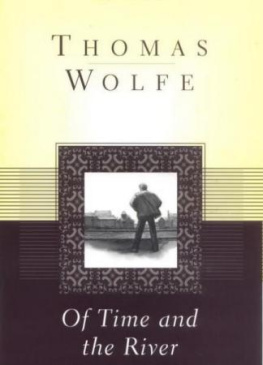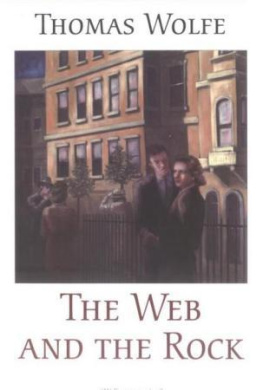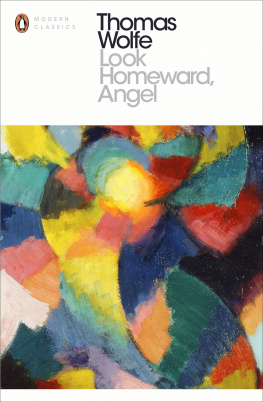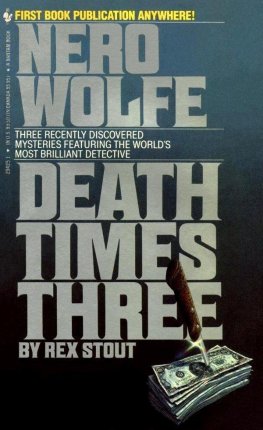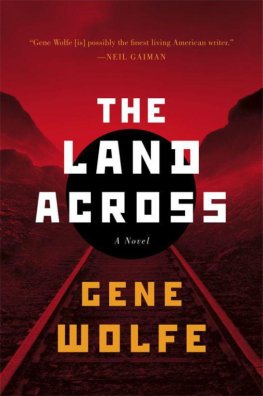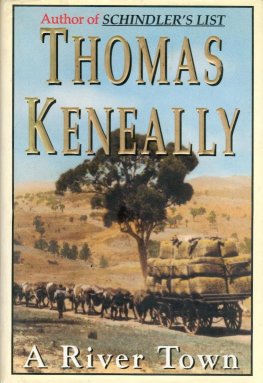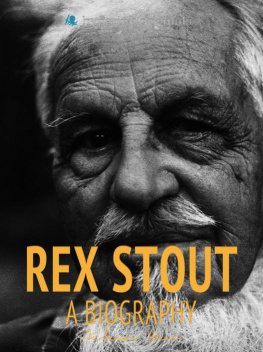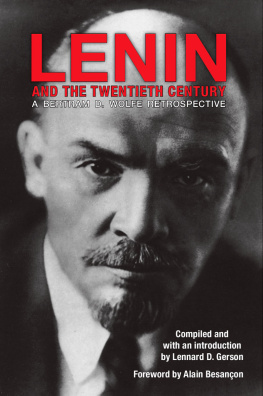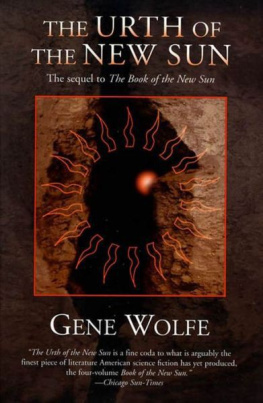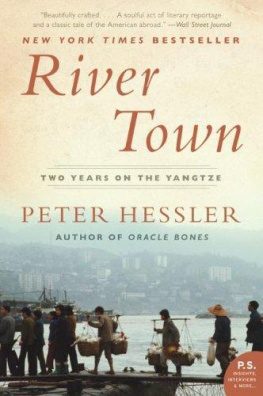OF TIME AND THE RIVER
A LEGEND OF MAN'S HUNGER IN HIS YOUTH
Thomas Wolfe
1935
"Who knoweth the spirit of man that goethupward, and the spirit of the beast that goeth downward to theearth?"
ToMAXWELL EVARTS PERKINSA GREATEDITOR AND A BRAVE AND HONEST MAN, WHO STUCK TO THE WRITER OF THISBOOK THROUGH TIMES OF BITTER HOPELESSNESS AND DOUBT AND WOULD NOT LETHIM GIVE IN TO HIS OWN DESPAIR, A WORK TO BE KNOWN AS "OF TIMEAND THE RIVER" IS DEDICATED WITH THE HOPE THAT ALL OF IT MAY BEIN SOME WAY WORTHY OF THE LOYAL DEVOTION AND THE PATIENT CARE WHICH ADAUNTLESS AND UNSHAKEN FRIEND HAS GIVEN TO EACH PART OF IT, ANDWITHOUT WHICH NONE OF IT COULD HAVE BEEN WRITTEN"Crito, my dear friend Crito, that, believe me,that is what I seem to hear, as the Corybants hear flutes in the air,and the sound of those words rings and echoes in my ears and I canlisten to nothing else."
CONTENTS
ORESTES: FLIGHT BEFORE FURY
YOUNG FAUSTUS
TELEMACHUS
PROTEUS: THE CITY
JASON'S VOYAGE
ANTUS: EARTH AGAIN
KRONOS AND RHEA: THE DREAM OF TIME
FAUST AND HELEN
"Kennstdu das Land, wo die Zitronen blhn,
Im dunkeln Laub dieGold-Orangen glhn,
Ein sanfter Wind vom blauen Himmel weht,
DieMyrte still und hoch der Lorbeer steht,
Kennst du eswohl?
Dahin! Dahin
Mcht'ich mit dir, O mein Geliebter, ziehn!Kennstdu das Haus, auf Sulen ruht sein Dach,
Es glnzt der Saal, esschimmert das Gemach,
Und Marmorbilder stehn und sehn mich an:
Washat man dir, du armes Kind, getan?
Kennst du es wohl?
Dahin!Dahin
Mcht' ich mit dir, O mein Beschtzer, ziehn!Kennstdu den Berg und seinen Wolkensteg?
Das Maultier sucht im Nebelseinen Weg,
In Hhlen wohnt der Drachen alte Brut,
Es strztder Fels und ber ihn die Flut:
Kennst du ihn wohl?
Dahin!Dahin
Geht unser Weg;
O Vater, lass uns ziehn!"BOOK I
ORESTES: FLIGHT BEFORE FURY
...
of wandering for ever and the earth again...of seed-time, bloom, and the mellow-dropping harvest. And of the bigflowers, the rich flowers, the strange unknown flowers.Where shall the weary rest? When shall the lonely ofheart come home? What doors are open for the wanderer? And which ofus shall find his father, know his face, and in what place, and inwhat time, and in what land? Where? Where the weary of heart canabide for ever, where the weary of wandering can find peace, wherethe tumult, the fever, and the fret shall be for ever stilled.Who owns the earth? Did we want the earth that weshould wander on it? Did we need the earth that we were never stillupon it? Whoever needs the earth shall have the earth: he shall bestill upon it, he shall rest within a little place, he shall dwell inone small room for ever.Did he feel the need of a thousand tongues that hesought thus through the moil and horror of a thousand furiousstreets? He shall need a tongue no longer, he shall need no tonguefor silence and the earth: he shall speak no word through the rootedlips, the snake's cold eye will peer for him through sockets of thebrain, there will be no cry out of the heart where wells the vine.The tarantula is crawling through the rotted oak, theadder lisps against the breast, cups fall: but the earth will endurefor ever. The flower of love is living in the wilderness, and theelm-root threads the bones of buried lovers.The dead tongue withers and the dead heart rots, blindmouths crawl tunnels through the buried flesh, but the earth willendure for ever; hair grows like April on the buried breast and fromthe sockets of the brain the death flowers grow and will not perish.O flower of love whose strong lips drink us downwardinto death, in all things far and fleeting, enchantress of our twentythousand days, the brain will madden and the heart be twisted, brokenby her kiss, but glory, glory, glory, she remains: Immortal love,alone and aching in the wilderness, we cried to you: You were notabsent from our loneliness.
I
About fifteen years ago, at the end of the second decade of thiscentury, four people were standing together on the platform of therailway station of a town in the hills of western Catawba. Thislittle station, really just a suburban adjunct of the larger townwhich, behind the concealing barrier of a rising ground, swept away amile or two to the west and north, had become in recent years thepopular point of arrival and departure for travellers to and from thecities of the east, and now, in fact, accommodated a much largertraffic than did the central station of the town, which was situatedtwo miles westward around the powerful bend of the rails. For thisreason a considerable number of people were now assembled here, andfrom their words and gestures, a quietly suppressed excitement thatsomehow seemed to infuse the drowsy mid-October afternoon with anelectric vitality, it was possible to feel the thrill and menace ofthe coming train.
An observer would have felt in the complexion of this gathering asomewhat mixed quality--a quality that was at once strange andfamiliar, alien and native, cosmopolitan and provincial. It was notthe single native quality of the usual crowd that one saw on thestation platforms of the typical Catawba town as the trains passedthrough. This crowd was more mixed and varied, and it had a strongcolouring of worldly smartness, the element of fashionablesophistication that one sometimes finds in a place where a native andalien population have come together. And such an inference was herewarranted: the town of Altamont a mile or so away was a well-knownresort and the mixed gathering on the station platform was fairlyrepresentative of its population. But all of these people, bothstrange and native, had been drawn here by a common experience, anevent which has always been of first interest in the lives of allAmericans. This event is the coming of the train.
It would have been evident to an observer that of the four peoplewho were standing together at one end of the platform three--the twowomen and the boy--were connected by the relationship of blood. Astranger would have known instantly that the boy and the young womanwere brother and sister and that the woman was their mother. Therelationship was somehow one of tone, texture, time, and energy, andof the grain and temper of the spirit. The mother was a woman ofsmall but strong and solid figure. Although she was near her sixtiethyear, her hair was jet-black and her face, full of energy and power,was almost as smooth and unlined as the face of a girl. Her hair wasbrushed back from a forehead which was high, white, full, andnaked-looking, and which, together with the expression of her eyes,which were brown, and rather worn and weak, but constantlythoughtful, constantly reflective, gave her face the expression ofstraight grave innocence that children have, and also of strongnative intelligence and integrity. Her skin was milk-white, soft oftexture, completely colourless save for the nose, which was red,broad and fleshy at the base, and curiously masculine.
A stranger seeing her for the first time would have known somehowthat the woman was a member of a numerous family, and that her facehad the tribal look. He would somehow have felt certain that thewoman had brothers and that if he could see them, they would looklike her. Yet, this masculine quality was not a quality of sex, forthe woman, save for the broad manlike nose, was as thoroughly femaleas a woman could be. It was rather a quality of tribe andcharacter--a tribe and character that was decisively masculine.
The final impression of the woman might have been this:--that herlife was somehow above and beyond a moral judgment, that no matterwhat the course or chronicle of her life may have been, no matterwhat crimes of error, avarice, ignorance, or thoughtlessness might becharged to her, no matter what suffering or evil consequences mayhave resulted to other people through any act of hers, her life wassomehow beyond these accidents of time, training, and occasion, andthe woman was as guiltless as a child, a river, an avalanche, or anyforce of nature whatsoever.

